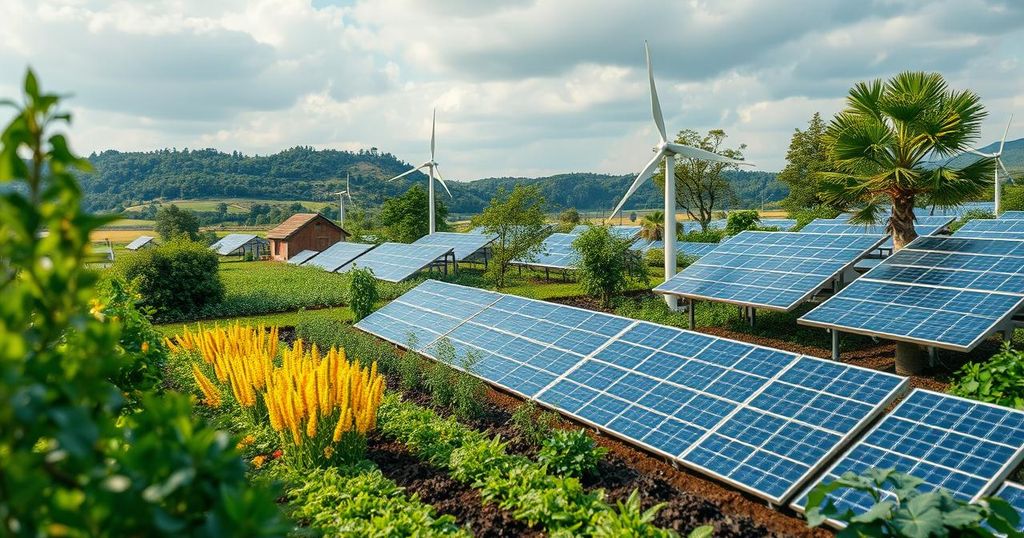The 2024 World Agri-food Innovation Conference highlighted the need for an innovation-driven green transition in global agri-food systems to address climate change and reduce emissions. Experts emphasized the essential role of technological advancements in maintaining food production amidst rising temperatures and called for global cooperation to achieve sustainable agricultural practices.
The 2024 World Agri-food Innovation Conference (WAFI 2024) in Beijing has brought to the forefront the urgent need for an innovation-driven green transition within the global agri-food system to combat climate change and reduce carbon emissions caused by food production. With climate change posing significant risks to agricultural stability across regions like Asia, Africa, and South America, a panel of experts has highlighted the necessity of technological advancements to bolster food security amid rising global temperatures. Sun Qixin, president of China Agricultural University, emphasized that projections indicate a decline in food production of about 6 to 8 percent for every 1°C increase in global temperatures, unless substantial technological innovations are developed. He noted that, although some areas may experience temporary benefits from a warmer climate, the overall consequences of climate change are leading to unpredictable challenges in food production. Furthermore, he asserted the importance of reducing agricultural inputs such as fertilizers and investing in research to ensure that the transition to more sustainable practices does not compromise food output. Fu Wenge, also from China Agricultural University, underscored that innovations for a green transition do not always require groundbreaking science; even small, cost-effective reforms in management can result in significant improvements. He referenced the Science and Technology Backyard project, which engages students with smallholder farmers to promote sustainable practices and advanced crop varieties, as an effective model with international applications. Ismahane Elouafi, executive managing director of CGIAR, pointed out that a holistic approach involving technological, policy, and institutional innovations is essential for a successful green transition. She asserted the importance of broad collaboration, stating, “The impact of climate change is multiplying every day, and the only way forward for us is to adopt innovation in its broad sense to really transform the agriculture system.” Patrick Caron, vice-chair of the CGIAR system board, highlighted that while increased production has historically improved human living conditions, present circumstances necessitate a more mindful approach to food production that prioritizes sustainability and environmental preservation. China’s position as a significant contributor to global food security continues to spark hope amid growing food insecurity. As the country aims to enhance its food production capacity to 700 million metric tons by 2030, Elouafi pointed to China’s dual success of productivity increases alongside poverty reduction as exemplary. Notably, Foreign Ministry spokeswoman Mao Ning affirmed that China is dedicated to supporting global food security initiatives, thereby fostering international collaboration to eliminate hunger altogether.
The agri-food sector is increasingly recognized as a significant contributor to global greenhouse gas emissions, accounting for one-third of the total. Thus, transitioning towards environmentally sustainable practices is not simply an optional strategy but rather a critical imperative for mitigating climate change and ensuring food security. The World Agri-food Innovation Conference serves as a vital platform to discuss how innovations in technology, management, and policy can facilitate this necessary transformation in agriculture, particularly in the face of unpredictable climate impacts.
In conclusion, the call for a green transition in the agri-food sector is an urgent response to the challenges posed by climate change. Innovations that range from technological advancements to management reforms are critical to achieving sustainability without sacrificing food production. China stands out as a beacon in this effort, demonstrating the possibility of increasing food security and productivity while addressing poverty. Collaboration and commitment from all nations will be pivotal in realizing a food-secure future.
Original Source: en.people.cn







